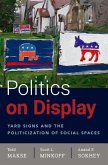
Broschiertes Buch
Yard Signs and the Politicization of Social Spaces
3. Mai 2019
Oxford University Press
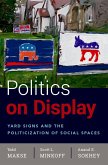
15,95 €
Sofort per Download lieferbar
20,95 €
Sofort per Download lieferbar
Ähnliche Artikel
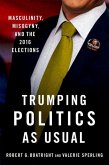
Broschiertes Buch
Masculinity, Misogyny, and the 2016 Elections
8. Oktober 2019
Oxford University Press

Broschiertes Buch
2nd edition
28. August 2019
Oxford University Press


Broschiertes Buch
How Local Governments Compete for Power in State Politics
31. Dezember 2021
Hurst & Co.
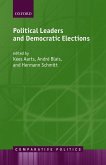
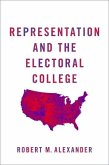
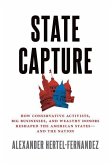
Broschiertes Buch
How Conservative Activists, Big Businesses, and Wealthy Donors Reshaped the American Statesâand the Nation
1. Februar 2021
Oxford University Press

Broschiertes Buch
Gender, Framing, and Policymaking in the Battle Over Birth Control
20. November 2019
Oxford University Press

Broschiertes Buch
The Federalist Society and the Conservative Counterrevolution
1. August 2019
Oxford University Press
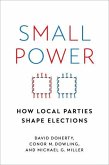
Ähnlichkeitssuche: Fact®Finder von OMIKRON
